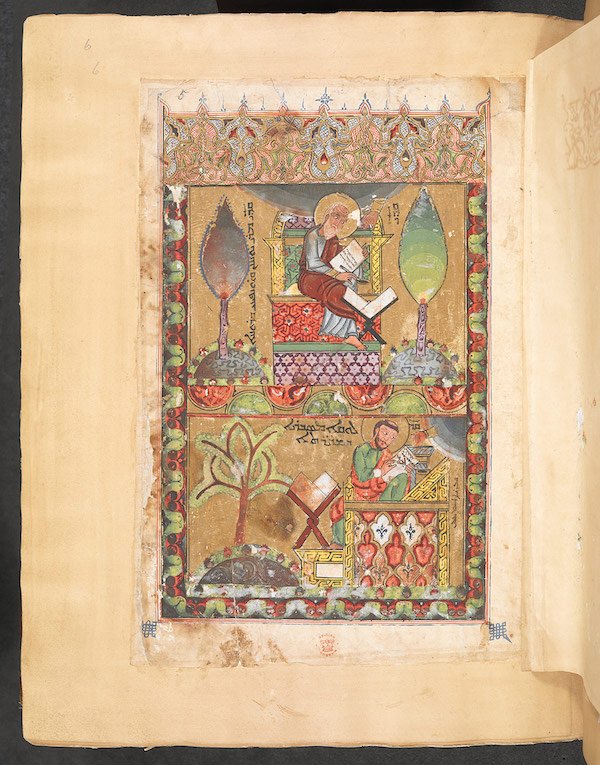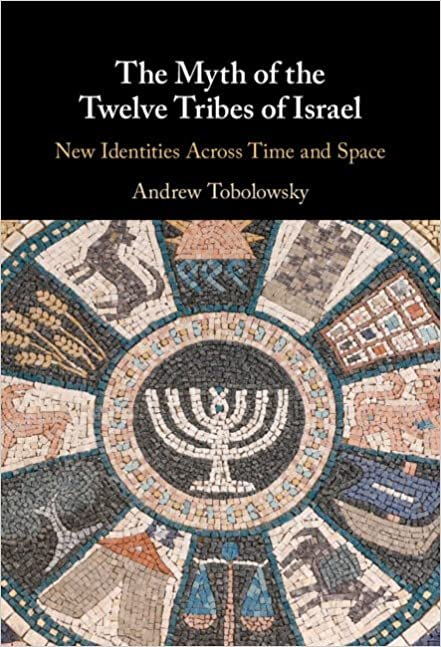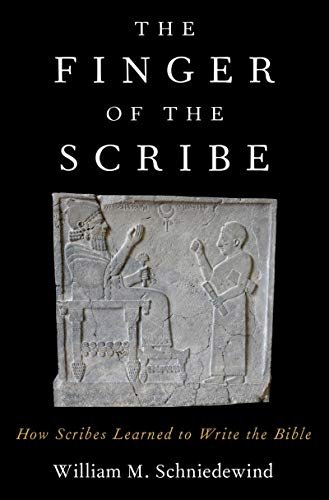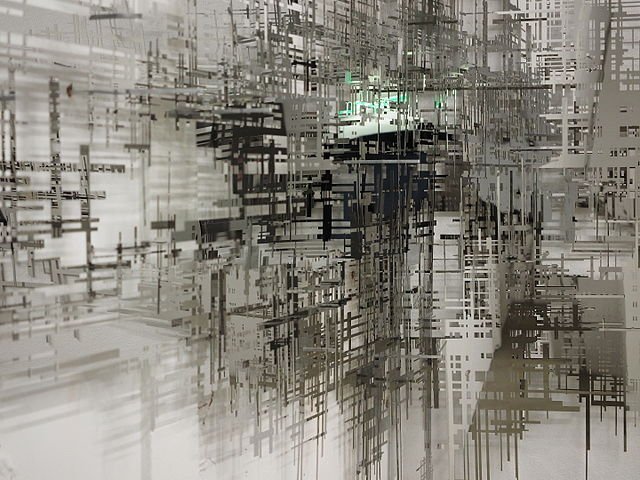“The Pharisees includes historical studies that range from archaeology and etymological investigation to contributions that take up the Pharisees in association with Dead Sea Scrolls, 1 Maccabees, Josephus, selections from the New Testament, and rabbinic literature.”
Read MoreResponse to the Respondents
Roman Funerary Relief from Nijmegen, showing a school scene. Courtesy of Wikimedia Commons.
Roman Funerary Relief from Nijmegen, showing a school scene. Courtesy of Wikimedia Commons.
The study of fragmented remains of manuscripts shows how an approach will always be in need of adjustment when we use it on new and different materials. Both my study and the studies that documentary papyrologists do, start with the material remains. However, in my study of the Syriac manuscripts, I have had access to whole codices, even some medieval bindings, to colophons and notes, to churches that still stand, and to monasteries that are still active.
Read MoreCelebrating the Remedy of Neglect: a review of Liv Ingeborg Lied, Invisible Manuscripts: Textual Scholarship and the Survival of 2 Baruch.
Syriac Gospel Lectionary, British Library Add MS 7170
Syriac Gospel Lectionary, British Library Add MS 7170
“But if we wished to correlate other embodiments of this work, whether whole or partial, in Bible manuscripts, lectionaries, and catenae, in order to approximate the richness of Lied’s study of the embodiments of 2 Baruch—even if we were to confine ourselves just to the Syriac versions of Isaiah—we would quickly find ourselves swimming in deep waters, with a veritable tidal wave of varied manuscripts and possible contexts of use piling up and threatening to overwhelm us.”
Read MoreIs That All There Is?: On Limits in the Study of Second Temple Literature
“Enoch and Elias” British Library Royal 6 E IX f. 2v
“Enoch and Elias” British Library Royal 6 E IX f. 2v
“What if, as is suggested by Lied, 2 Baruch is not so easily traced to the earliest centuries CE, on account of its far later and Christian manuscripts?”
Read MoreOther People’s Hands: A Response to Lied’s Invisible Manuscripts
Saint Catherine's Monastery
Saint Catherine's Monastery
“This distinctively theological Christian supersessionism is just one iteration of a larger historiographical structure: one that involves claims to be the legitimate ‘heirs’ and best caretakers of a tradition, alongside the grudging and anxious awareness that the survival or access to that past is dependent on ‘someone else.’”
Read MoreWhat Can Manuscripts Tell Us about the Texts They Preserve? A Response to Liv Ingeborg Lied’s Invisible Manuscripts
leaf of the Codex Ambrosianus B. Codex Ambrosianus S. 45 super
leaf of the Codex Ambrosianus B. Codex Ambrosianus S. 45 super
“It is not only useful but, indeed, methodologically imperative to distinguish between 2 Baruch, a Jewish composition of the late first century CE, and its Syriac translation as preserved in the Ambrosianus.”
Read MoreLied's Invisible Manuscripts: a Review Forum
“It provides a new, critical look at the traditional academic narrative of this writing. And, it offers a critical and constructive engagement with approaches to textual scholarship in the field, paving the way for a provenance aware material philology.”
Read MorePublication Preview | The Myth of the Twelve Tribes of Israel
There were, in the ancient world and even into the medieval, those who claimed descent from the heroes of the Trojan War, and there have always been those who connected their genealogies to Noah’s Ark. I feel, however, very confident in saying that no identity in the history of the world has been assumed so often, in so many places, and for so long a time as Israel.
Read MoreRetrospective | Timothy Lim
The books that were eventually included in the canon share “family resemblances” with other books left out of the canon. For instance, just as the same eye colour can be found in people belonging to unrelated families, so too the story of Israel is evident in canonical and non-canonical books.
Read MorePublication | Desire in Paul's Undisputed Epistles
My study of “desire” (epithymeō, ho epithymētēs, epithymia, hereafter “desire”) in the Roman Empire arose because of the lack – at least as far as I am aware – of a single thesis or book examining the use of these lexemes within the Greek literature of the early Roman Empire.
Read MoreLeviticus 10, Numbers, and “Theocracy”: A Response to Meike Röhrig
“Borrowing a concept already used in other areas of religious studies, one could speak here of a process of “priestification,” in which the priestly revisions of the Pentateuch—and possibly of other collections of scriptures as well—somehow go hand in hand with a conception conferring increased agency to the priests.”
Read MoreA Pair of Pyromaniacs
“I would thus conclude that the supplemented version of Lev 10 is “theocratic” in the same way as the basic layer might be called “theocratic”: The text strengthens the priestly family’s important role in Israel’s daily life and in keeping Israel’s relationship with their God in good order.”
Read MoreAdaptation to the Story World: a Response to Nathan MacDonald
“The procedure for sacrificing the calf ends up looking like a hybrid form not because this text was written by a later author who doesn’t understand the details of the priestly sacrificial system, but rather because Aaron was forced to adapt and innovate due to circumstances in the story world.”
Read MoreError and Response in Leviticus 10
“There are two intractable problems. First, what precisely was the error in vv. 1–2 that led to Nadav and Avihu being consumed by divine fire?… Secondly, why does Aaron’s enigmatic response in v. 19 mollify Moses and allow an irregular practice to be permitted?”
Read MoreLeviticus 10: an SBL 2021 Panel
AJR is pleased to host a series of articles from the SBL 2021 Pentateuch program unit’s panel responding to Leviticus 10.
Read MoreMethod, Ethics, and Historiography: A Tracing Christians in Global Late Antiquity Forum
AJR is pleased to host a series of articles on method, ethics, and historiography in the study of late antique Christianity.
Read MoreAJR Conversations I Profaning Paul
“I would like to see nondisciplinary conversations about Paul’s archive, how his writings and themes moved through western history and how that movement involved configurations and operations with other texts, institutions, and politics.”
Read MoreBook Note | The Finger of the Scribe: How Scribes Learned to Write the Bible
“his holistic treatment of the inscriptions from Kuntillet ‘Ajrud as a set of scribal exercises that bespeaks the curricular categories known from cuneiform scribal education provides a novel empirical framework that clarifies the impact of the Mesopotamian scribal infrastructure on the early Israelite school curriculum.”
Read MoreForum | Method, Ethics, and Historiography: Late Antiquity, Reckoning
Could we step back for a moment from the work that we do that so captures our attention, to think about not just the state of the field as we usually discuss and debate, but also about its very relevance?
Read MoreForum | Method, Ethics, and Historiography: The Shift of Interpretative Allegiance
One strategy of decolonializing the mind is to shift our interpretative allegiance from the dominant voice (the voice of the author, the master) to the subaltern voices.
Read More


















